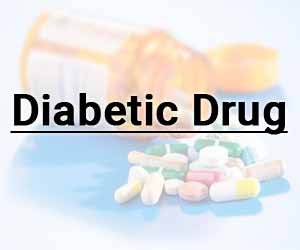- Home
- Editorial
- News
- Practice Guidelines
- Anesthesiology Guidelines
- Cancer Guidelines
- Cardiac Sciences Guidelines
- Critical Care Guidelines
- Dentistry Guidelines
- Dermatology Guidelines
- Diabetes and Endo Guidelines
- Diagnostics Guidelines
- ENT Guidelines
- Featured Practice Guidelines
- Gastroenterology Guidelines
- Geriatrics Guidelines
- Medicine Guidelines
- Nephrology Guidelines
- Neurosciences Guidelines
- Obs and Gynae Guidelines
- Ophthalmology Guidelines
- Orthopaedics Guidelines
- Paediatrics Guidelines
- Psychiatry Guidelines
- Pulmonology Guidelines
- Radiology Guidelines
- Surgery Guidelines
- Urology Guidelines
Diabetes drug may reduce withdrawal symptoms and help quit smoking

Smoking cessation may be difficult but it has several advantages including improving health, Prolongation of life, Improving sense of taste and smell and last but not the least saving money.
Smokers trying to quit smoking have to face potent withdrawal symptoms that include cravings, increased appetite, restlessness, anxiety, irritability, and depression. Even though they may want to quit, some smokers continue to smoke simply because the experience is so unpleasant.
Diabetes drug, pioglitazone abolishes the characteristic signs of nicotine withdrawal in animal studies.The finding may offer an important new strategy in the battle to quit smoking. The new research has been published in JNeurosci.
The diabetes drug, pioglitazone, targets a specific form of the peroxisome proliferator-activated receptors in the nucleus. This receptor, PPARγ, is found in areas of the brain involved in drug addiction.
Domi et al. demonstrated that direct injections of pioglitazone into the hippocampi of male mice reduced the signs of physical nicotine withdrawal, including paw tremors, chattering, and head shakes. Injecting pioglitazone into the amygdala of male mice ameliorated signs of anxiety associated with nicotine withdrawal.
Nicotine abusers face a 30% higher risk of developing Type II diabetes. The researchers suggest pioglitazone may help diabetic smokers quit by lessening the physical and emotional withdrawal symptoms while reducing insulin resistance.
Journal Information: Journal of Neuroscience
For more details click on the link: http://dx.

Disclaimer: This site is primarily intended for healthcare professionals. Any content/information on this website does not replace the advice of medical and/or health professionals and should not be construed as medical/diagnostic advice/endorsement or prescription. Use of this site is subject to our terms of use, privacy policy, advertisement policy. © 2020 Minerva Medical Treatment Pvt Ltd